 Looking to make a change? A career in finance could take you from struggling to provide for you and your family in a frightening, unstable world to an oasis of soothing calm. But how do you begin? You have to work, you have responsibilities. More and more people are going to college online, to learn entirely new skills. Getting a Bachelors in Finance from home, on your schedule, is a great way to change course in your life. Money isn’t everything, but it can free you to find what does matter most to you. A Bachelors in Finance will put you on an educational road in which you can become indispensable to a thriving business. One of the biggest things holding people back from financial success is not understanding the business climate we live in. Staying ahead of that curve will pay off in spades down the road. Here are 20 of the best online Bachelors in Finance. This list was compiled based on cost, flexibility and how the school was ranked by pros.
Looking to make a change? A career in finance could take you from struggling to provide for you and your family in a frightening, unstable world to an oasis of soothing calm. But how do you begin? You have to work, you have responsibilities. More and more people are going to college online, to learn entirely new skills. Getting a Bachelors in Finance from home, on your schedule, is a great way to change course in your life. Money isn’t everything, but it can free you to find what does matter most to you. A Bachelors in Finance will put you on an educational road in which you can become indispensable to a thriving business. One of the biggest things holding people back from financial success is not understanding the business climate we live in. Staying ahead of that curve will pay off in spades down the road. Here are 20 of the best online Bachelors in Finance. This list was compiled based on cost, flexibility and how the school was ranked by pros.
Methodology:
- Flexibility (1/3): the range of flexibility-granting components, including accelerated courses, lenient transfer policy, life-experience credits, and other innovative presentation techniques.
- Affordability (1/3): the estimated out-of-state tuition per credit hour (where applicable).
- Academic Quality (1/3): a look at the average class size, percentage of instructors with terminal degrees in their field, and other academic support services.
1) Rasmussen College

Rasmussen is a for-profit college that started as a business school in 1900. While other for-profits have collapsed since the Great Recession, or seen huge drop-offs in enrollment, Rasmussen has quietly and steadily grown. It now has 24 campuses across the country, and a growing online presence. In 2012, senior staff spoke about how hard the school works to place every student in a career, and knowing the outcome of each student enrolled. Rasmussen offers 70 programs broken into seven schools including Health Sciences, Design, Business, Justice Studies, Education, Nursing, and Technology. Rasmussen is accredited by the Higher Learning Commission (HLC), the regional accreditor serving Minnesota, and its infrastructure is highly concentrated in the Midwest. Over 13,500 students attend the school, many of which online since 2002.
Graduates of Rasmussen’s Finance Bachelor’s have gone on to work at top employers like 3M, Coca-Cola, General Mills, Wells Fargo, UPS, Target and more. This program promises a wide range of financial concept comprehension and hard skill development that will play well in the current marketplace. You won’t be in school forever, and you can complete this degree in as little as 18 months. Rasmussen offers what they call Flex Choice, a hybrid of traditional courses and competency-based education (CBE). You’ll take care of the CBE through project-based assessments and real-world scenarios, and attend classes online in a more traditional model. Through this you’ll learn to recognize an institution’s financial policy, find fraud, understand business law, and get a good sense of morality and ethics as they apply to financial institutions. Rasmussen was ranked highly because of its accelerated program, and its generous transfer policy.
- Homepage
- Estimated Out-of-State Tuition per Credit: $261
- Flexibility-enhancing components: generous transfer policy/accelerated
2) Columbia College
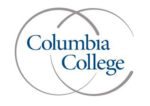
Not to be confused with Columbia University, this Missouri college is a private, non-profit independent liberal arts school that has a covenant with the Christian Church (Disciples of Christ) since it was founded in 1851. In 2009, Columbia College was ranked 51st in the category of “Best Universities-Master’s” for the Midwest Region by U.S. News & World Report. Columbia received the designation of a “Best Midwestern University” by The Princeton Review in 2014. Columbia College has a strong record of recognizing education must change. Its principal in 1971, W. Merle Hill said, “I would like to bring education screaming and kicking into the 1970s. Then we would only be about 70 years behind.” Columbia was put on this list because it has two related degrees in its Bachelor Finance program, to give you greater agency if you choose it.
The two options are a Bachelor of Arts in Business Administration, and a Bachelor of Science in Business Administration. You can also have a Finance minor. Both can be completed entirely through Columbia College’s online campus. The difference between the two is the Bachelor of Arts is a more general education that puts a greater emphasis on foreign language, while the Bachelor of Science is more Finance focused. Columbia College charges you about $290 per credit hour barring scholarships/financial aid. These programs will prepare students for careers managing/aiding financial departments for profitable business, government institutions and non-profits alike. You’ll learn how to properly evaluate financial statements and financial conditions, evaluate investment decisions, develop a personal financial plan, understand/navigate financial markets, manage financial operations and plan/create future growth.
- Homepage
- Estimated Out-of-State Tuition per Credit: $275
- Flexibility-enhancing components: two related degrees
3) Southern New Hampshire University

Southern New Hampshire University or SNHU is a private, nonprofit, coeducational, and nonsectarian university between Manchester and Hooksett, NH. It was founded in 1932, and has over 3,000 on campus students, with 60,000 continuing education students. Its closely related Business school is accredited by the Accreditation Council for Business Schools and Programs. SNHU is known for its adapting, innovative business and finance programs. Fast Company called Southern New Hampshire University the 12th most innovative organization in the world in 2012. SNHU was ranked among companies like Apple, Google, and HBO, and above the National Football League, Starbucks, and LinkedIn. Its finance program was chosen on this list in part because it’s accelerated and/or self-paced.
In SNHU’s Finance Bachelor’s, you’ll study corporate finance, financial markets, investment fundamentals, financial regulations and much more to prepare for a litany of careers. Some career outcomes after graduating with a Bachelor’s in finance from SNHU include financial analyst, personal banker, account manager, risk analyst or financial consultant. SNHU’s national prestige gives graduates access to a diverse and successful pool of alumni to approach for help gaining access to coveted internships and job openings. As mentioned before, you’ll be able to complete your degree at your own pace, over six 9-week terms each year. One of the coolest things you’ll do in the program is manage a virtual stock market portfolio and model with cutting edge simulations that will show you how to pair theory with real-world application.
- Homepage
- Estimated Out-of-State Tuition per Credit: $320
- Flexibility-enhancing components: accelerated or self-paced
4) Capella University

Capella is a mostly online, private institution based out of Minneapolis, Minnesota. CU offers 142 graduate and undergraduate specializations as well as 25 certificate programs spread out over 1600 online courses. Capella has about 36,000 students that come from all 50 states and 61 foreign countries. The school’s faculty is made up of almost 1,500 professors, 86 percent of which have doctoral degrees. Capella was founded in 1993, and earned its regional accreditation in 1997. In 2000 Capella began offering Bachelor degree programs. In 2006 it became a publicly traded company. Capella University’s business programs have been accredited by the Accreditation Council for Business Schools and Programs since 2014. Its admissions are wide open, in order for prospective students to be accepted, all they need to do is pass a university-approved exam.
Capella’s Finance Bachelor’s offers a wide range of gen ed requirements, but Capella made this list because it accelerates its students through these. The school then lets loose an avalanche of finance courses. Your core courses will be made up of fundamentals like management, leadership, business law, supply chain management and much more. Most students in this Bachelor Finance program take 1 or 2 courses at a time, although that’s up to your discretion. Each course generally requires 10 to 12 hours of study each week. Capella grades its students based on their participation in discussions and completion of assignments. Students will receive detailed reports on why they were graded the way they were.
- Homepage
- Estimated Out-of-State Tuition per Credit: $315
- Flexibility-enhancing components: accelerated gen ed classes
5) Granite State College
![]()
Granite State College is a part of the University System of New Hampshire. It was founded in 1972, and has expanded to nine campuses across New Hampshire. Its online program takes its Bachelor’s and Masters programs around the world. In 2016, Granite State College was touted by U.S. News & World Report in their compilation of the “Best Online Degree Programs”, ranking 79th for bachelor’s degrees and 51st for graduate business degrees. Granite State was the top ranked school in New Hampshire in both categories. Graduates of the school have been known to improve their life situations dramatically afterwards. Recognizing this, Granite State College received a top 5 national ranking in the Washington Monthly 2013 liberal arts college rankings for “Social Mobility.” It earned the #1 spot in New England in this category, and was ranked second nationally in social mobility. In 2014, Granite was called the least expensive college in New England by the US Department of Education.
Granite’s Finance Bachelor’s is a Bachelor’s of Science in Accounting and Finance. You’ll learn how to help organizations better leverage assets, manage budgets, gain efficiencies, and maximize investments. You’ll be able to find work at any organization with a financial sector, and job positions you’ll be qualified for include Accountant, Auditor, CPA, Financial Analyst, Financial Planner, and Loan Underwriter. One of this program’s specialties is teaching students how to communicate effectively, both verbally and in writing, focusing on explaining, evaluating, and presenting financial and accounting information to varied audiences.This program made the list because of its weekend intensive classes which allow people with busy schedules to achieve their degree without spending too much time during the week on coursework.
- Homepage
- Estimated Out-of-State Tuition per Credit: $325
- Flexibility-enhancing components: weekend intensives available
6) Excelsior College

Excelsior College is a private, non-profit school based out of Albany, New York. Around 36,500 students attend the school. It was founded in 1971, by the New York State Board of Regents as an external degree institution. EC was accredited by the Commission on Higher Education of the Middle States Association of Colleges and Schools. It’s known for its willingness to accept transfer credits from other schools. Overall, Excelsior has a tradition of flexibility in allowing its students access to its education while not hampering their lifestyles. EC also has an exceptional record of servicing military veterans and active service members. Its model is comparable to the Thomas Edison State College in New Jersey and Charter Oak State College in Connecticut, and together the three schools are known as “The Big Three” in distance learning circles. This school made the list in part due to its incredible flexibility and transferable credit acceptance from other schools and military service itself.
Excelsior’s Finance Bachelor’s is a Competency-based Education program. This model allows you to achieve your Bachelor of Science in Business with the finance concentration in a program combining course-based learning, independent study, and earned external credits. You’ll choose 8 or 15-week online courses in finance, business, and other subjects that will prepare you to enter the workforce. On your own, you’ll engage in independent study guides and practice tests that get you ready earn credit by exam. You can also skip the practice and earn credits by exam for subjects you feel you’ve mastered. Finally, Excelsior helps streamline you through its program by accepting credits earned at other institutions, through military experience, other college-level exams like CLEP and DSST, learning assessment, workforce training and professional certifications at any time in your life.
- Homepage
- Estimated Out-of-State Tuition per Credit: $490
- Flexibility-enhancing components: accelerated courses (or not), and the ability to transfer in life and military credits
7) Colorado State University – Global Campus

Founded in 2007, CSU-Global Campus is a public online university that is part of the Colorado State University System. The university is headquartered in Greenwood Village, Colorado, outside of Denver. Colorado State University-Global Campus (CSU-Global) is one of the three separate campuses in the Colorado State University System. It is the country’s first and only 100% online, independently accredited, state, nonprofit university; it is not a virtual option supporting a bricks-and-mortar institution. The school initially developed from a $12 million grant from the CSU Board of Governors, and has grown from an inaugural class of 200 to a student enrollment of over 17,000, with more than 8,000 graduates. All courses are specifically aimed at working professionals and adult learners, and curricula emphasize developing practical skill sets to carry into employment. Further, CSU-Global Campus offers a unique affiliate program with a number of government agencies and private organizations – including Farmers Insurance Group, AT&T, Otterbox, State of Colorado, State of Utah, and the State of Nevada – which offer discount incentives to employees wishing to continue their education.
CSU’s Finance Bachelor’s is a focus area for other degrees, and was ranked highly on this list because it gives students the option to pair with other degrees and customize their education. In this program, you’ll learn to manage financial operations, detailed reporting, analyzing, forecasting, purchasing, investing, and other best practices to handle funds, cash flow, and financial regulations. Your Finance focus will envelop classes in Financial Economics, Financial Reporting and Analysis, Corporate Finance and International Financial Management.
- Homepage
- Estimated Out-of-State Tuition per Credit: $419
- Flexibility-enhancing components: this is a focus area in other degrees. so you really can pair with many combinations/customizable
8) Columbia Southern University

This for-profit, distance learning specializing school is based in Orange Beach, Alabama. Over 20,000 students attend the school, just under 15,000 of which are undergraduates. The school boasts over 1,000 full-time faculty and staff. Columbia Southern has been accredited by the Distance Education Accreditation Commission (DEAC). CSU has been approved to offer up-front tuition assistance through the U.S. Army’s centralized tuition assistance portal, GoArmyEd. Columbia Souther University offers 26 degrees at the associate, bachelor, and master levels, as well as 21 certificate programs, all online. CSU is known for its open enrollment and affordable tuition.
Students who graduate Columbia Southern University’s Bachelor of Science in Business Administration Finance-concentrated program will exit with a wide and powerful knowledge of business theories, policies, and procedures. Students of the BSBA will be able to apply managerial decision making, interpret business concepts, principles, financial strategies, examine the effects of globalization on their work environment and analyze financial statements. Those in the Finance concentration will specifically learn how to assess, research and propose financial solutions. Most importantly, they’ll be prepared to assist corporations and organizations in obtaining, administering and managing funds wisely.
- Homepage
- Estimated Out-of-State Tuition per Credit: $210
- Flexibility-enhancing components: N/A
9) Liberty University

Liberty University is a private, non-profit Christian doctoral research university. LU was established in 1971 and has over 120,000 students, over 95,000 of which attend the school online. Liberty was founded by Christian fundamentalist Jerry Falwell, and proudly emphasizes the intellectual and spiritual development of its students. It believes its secret to success lies in a solid commitment to biblical truth. It claims to be the nation’s largest nonprofit online university, and says its pioneered distance learning since 1985. According to the school, its online programs have over 245 different degrees offered with the lowest tuition rates among top colleges. Liberty was placed on this list due to its concentrated intensive courses and credits given for life experience as part of its Finance Program.
Liberty’s Finance program will help students build financial skills critical to begin a business career. Students will be taught about financial analysis, investment strategy, the stock market, and banking skills. Graduates often go on to careers as Financial Analysts, Investment Bankers, Management Consultants, Loan Officers, Real Estate Agents/Brokers, Securities Analysts and Entrepreneurs. Students in this program build skills in general business, accounting, economics and marketing. Your faith will be integrated into financial matters to round out education from Liberty. Achieving this degree takes 120 hours, 30 of which must be taken directly through Liberty. 50% of your major classes, or 24 hours, must be taken through Liberty directly.
- Homepage
- Estimated Out-of-State Tuition per Credit: $375
- Flexibility-enhancing components: intensives and life experience credits
10) Baker College
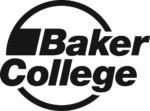
Baker College is a private, not-for-profit school based out of Flint Township, Michigan. It has been continually operated for over 100 years. Baker College has expanded from one campus to 14 locations, 13 in Michigan and one in Pennsylvania, and of course, offers degrees throughout the world via its online programming.. It offers certificates, associate, bachelor, master and doctoral degree programs in business, healthcare, human services, education, and technology. These categories include programs in: nursing, teaching, interior design, architecture, automotive service technology, and computer and Internet technologies. It maintains a right-to-try admissions policy (it accepts anyone who has a high school diploma or a GED, and students without either can still be accepted based on test results). Baker College also has an extensive financial aid office to try and give access to its programs to as many students as possible.
Baker’s Finance program puts an emphasis on resource allocation, teaching its students how to thrive in positions working with financial markets, financial instruments, individuals, and institutions which manage money or assets. Common fields that students enter upon graduation include corporate finance, investment banking, financial markets and services, or insurance. Baker says the median salary for Analysts is over $78,000, heading up to over $115,000 for Financial Managers. This is an industry that projects 12% growth over the next three years. Students in Baker’s Finance program will improve their understanding of social, ethical, economic, legal, and regulatory environment in which businesses operate. While doing this, they’ll develop their problem-solving, decision-making, communication, and leadership skills that will make them indispensable in a growing, interconnected global marketplace.
- Homepage
- Estimated Out-of-State Tuition per Credit: $240
- Flexibility-enhancing components: N/A
11) Upper Iowa University

This private, distance education-oriented University was founded in northeast Iowa, but now has 15 locations across America, and three in Asia. There are over 6,000 students who attend the school, and the faculty to student ratio is 24:1. Upper Iowa University offers 40 majors. Students can peruse degrees in art, business, conservation management, education, higher education administration, human services, information technology, liberal arts, math, nursing, psychology, science, and more. UIU has been recognized in GetEducated.com’s Best Buy Rankings and Online Education Database (OEDb) Online College Rankings since 2007. In 2015, it received high praise from U.S. News & World Report, ranking 109th in Regional Universities (Midwest), 40th in Best Colleges for Veterans, 87th in Best Online Bachelor’s Programs and 123rd in Best Online MBA Programs. Not bad for a small school from a small state. UIU is also noted for its accessibility for veterans and active members of the military.
UIU made this list in part due to its accelerated program, helping busy students achieve their degree in the shortest amount of time possible. This program gives students a solid background in business skills through core courses which prepare them to hone in on financial management. Through this program you’ll be prepared to study finance matters at a graduate level as well. Skills developed, improved or created include managing and building teamwork,
analyzing financial opportunities, producing/understanding financial statements, and managing finances. UIU Finance curriculum is founded in investments, small business management, strategic management and international finance.
- Homepage
- Estimated Out-of-State Tuition per Credit: $405
- Flexibility-enhancing components: accelerated
12) Regis University

Regis is a private, co-ed, Roman Catholic university. It was founded by the Society of Jesus in 1877. Regis is split into five schools: Regis College, The Rueckert-Hartman College for Health Professions, the College for Professional Studies, the College of Computer and Information Sciences, and the College of Business and Economics. The school has a long record of excellence, and in 2013 was recognized as a top-tier ranked U.S. News & World Report school for 19 years in a row. Almost 2,000 faculty member serve nearly 9,000 students. Regis has been identified as a top school for friendliness to Military members. The school’s business and finance programs put an emphasis on character, competence and ethics in the pursuit of business and financial careers.
Regis’ Finance degree takes students on an educational journey through exploring global economy. It’s designed to prepare students to work at banks, investment companies, government agencies, consulting firms, insurance firms and large and small corporations. This finance degree will grow finance skills and prepare students to receive certificates like the Series 7. This B.S. in Finance program tackles financial management in multiple forms including financial analysis, forecasting, planning, money, banking and managing technologies for business strategies. This finance degree also gets students ready to work with diverse management groups, marketing professionals, accountants and more. A bonus of the program is students that want to take an exam to become a CPA get a $400 discount special access to Becker CPA Exam Review courses.
- Homepage
- Estimated Out-of-State Tuition per Credit: $460
- Flexibility-enhancing components: accelerated
13) Indiana University
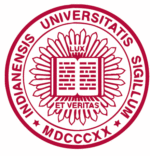
This incredibly large, public, multi-campus university is one of the most recognized schools in America. Over 110,000 students attend some part of its sprawling matrix of programming. Indiana University East, a regional campus, hosts the Bachelor’s Finance degree that is provided online. It grew out of Earldom University and the original Indiana University, founded in 1820. A huge advantage of attending any program within this network is its gargantuan endowment, ($1.735 billion) and access to all of the different campuses, classes and alumni that come with that long and powerful history. IU East offers 50 degree programs, and is split into seven schools, including Schools of Business & Economics, Education, Humanities & Social Sciences, Natural Science & Mathematics, Nursing, Social Work, General Studies and Informatics.
The IU East Finance program is a B.S. in Business Administration, with the option of a concentration in Finance. It’s made up of 20 courses that can be completed over 60 credit hours. It has a strong advisory program, which will work with students to create individual plans of study. This Finance program focuses its education on how firms and other entities raise money, how that money is invested in capital projects, how assets are valued, and how the cash flows from financial assets can be rearranged to meet specific objectives, like funding of pension liabilities. This online program will get students up to speed to begin careers in corporate finance, institutional finance, and investments.
- Homepage
- Estimated Out-of-State Tuition per Credit: $297
- Flexibility-enhancing components: N/A
14) Northeastern University

NU is a private research university that was founded in 1898. The Boston school has just under 25,000 students. Northeastern gave out $239 million in the 2015-16 year in grants and scholarship assistance. NU is a top athletic university and is an NCAA Division 1 school in 18 varsity sports. A highly selective academic school, Forbes ranked Northeastern 35th in “The Top 100 Colleges Ranked By SAT Scores” in 2013. Northeastern has a prominent cooperative education program that integrates classroom study with professional experience on seven continents and offers a wideanging study abroad program. It’s accredited by New England Association of Schools and Colleges (NEASC). U.S. News & World Report has ranked the NU higher and higher between 1985 and 2017. During that time it went from 176th to 39th in their rankings. It was ranked 7th for 2017 in the “most innovative” schools section of U.S. News & World Report.
Northeastern’s Finance program is a Bachelor of Science in Finance and Account Managing that can be taken entirely online. This degree will get students acclimated in a variety of financial matters and ready to leverage assets, manage budgets, achieve financial efficiencies, and maximize investments. Students will take courses like financial reporting, analysis, international finance and investments. You’ll develop your analytical and quantitative capabilities while preparing to begin a career in finance or accounting. It will also get students ready to become certified CPAs or CFAs, which it strongly recommends for maximum career earning potential.
- Estimated Out-of-State Tuition per Credit: $378
- Flexibility-enhancing components: N/A
15) Sullivan University

Sullivan University is a for-profit, private University established in 1962 in Kentucky. It’s the first for-profit school to be accredited by the Southern Association of Colleges and Schools. It has around 6,000 students, making it Kentucky’s largest private university. When Sullivan began, it began in part as a Business school, and has been offering Business Bachelor programs since 1990, receiving accreditation two years later. Sullivan has a strong online record, and vows to offer the exact same resources to online students as it does those who attend the school physically. The tuition and fees at Sullivan are approximately $19,000 per year.
Sullivan’s Finance program offers its students the opportunity to complete their Bachelor of Science in as little as 18 months. Topics taught in the degree program include banking, investments, insurance and portfolio management. Sullivan focuses on an interactive approach that encompasses a library of videos from instructors, live lectures, and cutting edge tools and techniques used in the financial industry. Students will be taken through comprehensive education in the principles of accounting, international business, conflict management, ethics, public speaking, micro and macroeconomics and much more. One of the areas closely inspected in this course is the development of pensions and its frequent transition into 401K’s, one of the most important benefits provided to employees and one of the most misunderstood.
- Homepage
- Estimated Out-of-State Tuition per Credit: $320
- Flexibility-enhancing components: N/A
16) Walden University

Walden is a for profit school based out of Minneapolis, Minnesota. It’s part of a huge network of 80 universities owned or managed by Laureate Education Inc. Most of Laureate’s schools are outside the United States, and their education institutions are made up of for profit and public benefit corporations. Laureate looks to compare public benefit performance against an objective third-party standard by being assessed by B Lab, an independent non-profit organization. Walden, established in 1970, has nearly 49,000 students enrolled. Walden University has been regionally accredited by the Higher Learning Commission and a member of the North Central Association of Colleges and Schools, a regional accreditation agency, since 1990. Walden University’s Business degrees have been accredited by the Accreditation Council for Business Schools and Programs (ACBSP). A Senate committee that compared Walden to other universities found it to be extremely competitively priced.
Walden offers a BS in Business Administration program that has a concentration in Finance. The goal of this concentration is to help students evaluate and direct the financial systems of an organization. Students will be educated on the important financial systems of organizations and lead it towards a coordinated effort to improve value for its employees and shareholders. Walden allows a mountain share of the required credits for this concentration to be transferred into the program. Of the 181 credits needed to graduate, 135 may be transferred in, and 45 must be completed at Walden to receive a degree. Students will take 11 Business Courses, 3 Concentration Courses, and choose 13 elective courses from gen ed courses, Business courses, or other bachelor degree programs. These electives can go towards a minor degree from Walden.
- Homepage
- Estimated Out-of-State Tuition per Credit: $322
- Flexibility-enhancing components: N/A
17) University of Minnesota Crookston

This public, four year university, was established in 1905, after the Minnesota legislature raised funds for it. It expanded rapidly after that, and currently encompasses 34 undergraduate majors, 39 concentrations, and 22 minors offered in four departments: Agriculture and Natural Resources; Business; Liberal Arts and Education; and Math, Science and Technology. Of their degrees, two of the top 5 most popular are Business Management and Accounting, so clearly their financial related academics are popular with their nearly 2,000 students. It’s earned high accolades, including being called one of the “Best Midwestern Colleges” in 2014, 2013, 2012, 2011, 2010, 2009, and 2008 by the Princeton Review. It’s also been in the top four of U.S. News & World Report “Best Colleges” in the “Midwest Public Regional Colleges” category every year, between 1998 – 2016.
As the financial systems of organizations become increasingly important to them, University of Minnesota Crookston offers a Finance Bachelor of Science to give its students the skills they need to thrive in this world through topics like Money and Banking, Investment, Insurance, Risk Management, Estate Planning, Corporate Finance, and Financial Institutions. Graduates of this program will be able to gauge and address consumer financial needs and the tools available to satiate them. Students will learn how to describe and apply financial concepts, tools in regards to the role of technology. Finally, students will gain a vast understanding of the legal, ethical and economic environment as it relates to financial services. UMC specializes in small classes and individualized attention, communication skills and was one of the highest ranked schools by college graders on this list.
- Homepage
- Estimated Out-of-State Tuition per Credit: $339
- Flexibility-enhancing components: N/A
18) Colorado Technical University
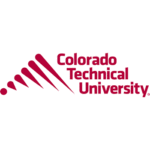
CTU is a for-profit, largely online university that has been in operation since 1965. Approximately 92% of its 21,200 students are entirely virtual. The school is largely American funded, receiving 95% of its funds from the US government, mostly allocated from the Department of Defense and GI Bill. This relationship could lead to careers in the everobust, growing defense field, either in an official government capacity, or working for defense companies the government contracts like General Dynamics or Lockheed Martin. In 2015, CTU was ranked 58th on the U.S. News & World Report lists for Best Online Programs. CTU has been consistently recognized for its online bachelor’s degree programs. It placed 18th for master’s degrees in computer information technology and 22nd for master’s degrees for criminal justice in that year as well.
The CTU Finance BS in Business Administration is ACBSP-accredited, and encompasses an intense inspection of theories and practices related to financial accounting, investment allocation and risk management. Students will become well versed in marketing, international business practices, and international finance. Some of the most closely covered topics include banking, analytics, and business development. The program is completed through 180 total credit hours of required instruction. Those 180 hours are broken down into 66 hours of general education courses, 86 hours of core business administration courses, and an additional 28 hours of concentration credits in Finance courses themselves.
- Homepage
- Estimated Out-of-State Tuition per Credit: $325
- Flexibility-enhancing components: N/A
19) University of Alabama at Birmingham

This public university was established in 1969, and is the home to over 18,500 students and a little more than 2,000 academic staff. Over 110 countries are represented in its student body, studying in 140 programs broken into 12 academic divisions leading to bachelor’s, master’s, doctoral, and professional degrees. The school has degrees in social and behavioral sciences, the liberal arts, business, education, engineering, and healthelated fields such as medicine, dentistry, optometry, nursing, and public health. In 2016, UAB tied for 159th best national university by U.S. News & World Reports rankings. It receives more funding than all other Alabama universities combined.
UAB’s entirely online Bachelor of Science in Finance is AACSB-accredited and part of their prestigious Collat School of Business. This program promises to shape a new generation of business leaders and financial pros through its rigorous, 120 credit hours encompassing 15-week semesters that bring students through 78 credit hours in core business and finance courses and 42 credit hours in gen eds. This program requires a minimum high school GPA of 2.25 and minimum ACT score of 20 or SAT score of 950. The faculty in this program has been diligently culled from experienced, award-winning finance professionals.
- Homepage
- Estimated Out-of-State Tuition per Credit: $382
- Flexibility-enhancing components: N/A
20) Florida International University
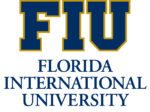
FIU is a public research university based out of Miami. It has over 54,000 students, just over 39,000 of which in its undergraduate programs. FIU’s sprawling programming includes 191 programs of study with more than 280 majors in 23 colleges and schools. Florida International University is highly ranked, including in 2015 #7 college in the United States by the Social Mobility Index college rankings. In 2010, FIU was listed as one of 16 universities with the toughest grading system nationally. U.S. News & World Report reported that FIU students are among the least indebted college students in the nation, and called it a “best buy” in higher education. FIU made this list because of its unique honors program for online students, a rarity in online education.
FIU Online’ Bachelor of Business Administration – Finance track will prepare students for careers in business, banking, corporate finance or investments. You’ll learn the latest technology in the field while gathering and analyzing financial information. Students will learn to apply principles and tools from mathematics, statistics, economics and accounting to financial decision-making. Students will build a bedrock in money management, including analysis and risk management. Whether you’re looking to launch into a career in finance or continue your financial studies into a master’s program, FIU will help students identify the functions of financial market, investigate and understand mortgage mathematics, commercial mathematics, and capital budgeting, explore international financial markets, eamine the commercial banking business and much more.
- Homepage
- Estimated Out-of-State Tuition per Credit: $333
- Flexibility-enhancing components: honors college available (unique offering for online)
Carrie Morris
Author
Warren Dahl
Editor-in-Chief

